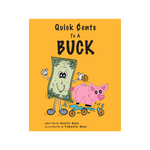You have no items in your shopping cart.
Money is hard to get, and it is always tight. This is why we must teach our young generation about FINANCIAL LITERACY or about MONEY in order to have a wealthy generation for today’s society. Learning about money from early childhood allows kids to live with a budget, and to get used to living within their budget.
Now, let’s breakdown why Money is so tight.
The tightness of money, often referred to as financial constraints or financial tightness, can arise from various economic and personal factors.
Here are some common reasons why money might be tight for individuals, businesses, or economies:
- 1. Economic Conditions: Economic downturns, recessions, or financial crises can lead to reduced economic activity, lower income levels, and higher unemployment rates. These conditions can result in reduced consumer spending and business investment, leading to a tighter availability of money in the economy.
- 2. Inflation: If prices of goods and services rise faster than income levels, purchasing power decreases. This can make it feel like money is tight, as people need more money to buy the same goods and services they used to buy with less.
- 3. Job Loss or Reduced Income: Losing a job or experiencing a decrease in income can significantly impact an individual’s financial situation. Sudden changes in employment status can lead to difficulty in meeting financial obligations, causing money to feel tight.
- 4. High Expenses: High living expenses, such as rent or mortgage payments, utility bills, healthcare costs, and other essential expenses, can strain finances and make it seem like money is tight.
- 5. Debt: Accumulated debt, such as credit card debt, student loans, or personal loans, can lead to high interest payments and reduce available funds, creating a sense of financial tightness.
- 6. Limited Savings: Insufficient savings can leave individuals or businesses vulnerable to unexpected expenses or emergencies, making it harder to manage financial obligations and maintain financial stability.
- 7. Poor Financial Management: Mismanagement of finances, such as overspending, lack of budgeting, or poor investment decisions, can lead to a situation where money feels tight due to inefficient use of available funds.
- 8. Market Fluctuations: For businesses, fluctuations in market demand, changes in industry trends, or increased competition can impact revenue and profitability, causing financial constraints.
- 9. Global Events: Geo-political events, natural disasters, pandemics, and other external factors can disrupt economies, businesses, and personal finances, leading to a tighter financial situation.
- 10. Lack of Access to Credit: Limited access to credit or borrowing options can make it difficult for individuals or businesses to manage cash flow and cover expenses during challenging times.
It’s important to note that financial tightness can vary widely depending on individual circumstances, geographic location, and broader economic conditions.
Addressing financial tightness often involves careful budgeting, reducing unnecessary expenses, seeking additional sources of income, managing debt, and building a solid financial foundation through savings and investments.








